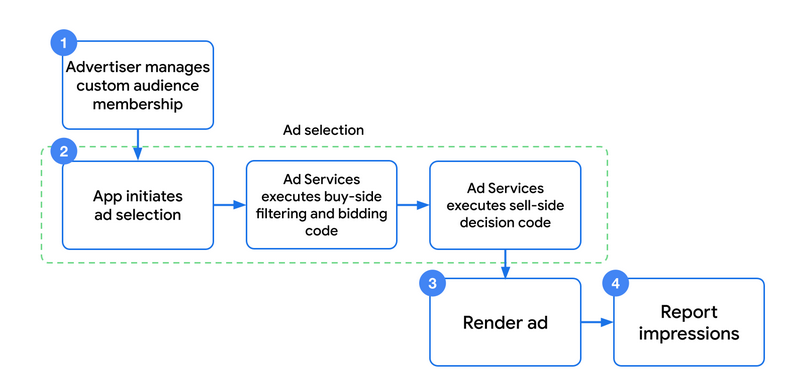The big picture: Given that ads form a major chunk of revenue for Google (and parent Alphabet), the search giant cannot afford to employ Apple-like strict measures in forcing apps to seek user permission for tracking their behavior across other apps. With Privacy Sandbox, however, Google is seeking to develop a new ad system that balances privacy by getting rid of user-level tracking mechanisms and preventing covert data collection, while keeping advertisers in the equation and ensuring that free content and services remain accessible without risk.
Google is bringing Chrome's Privacy Sandbox feature to Android, target technologies that it acknowledges are different but will benefit users and advertisers across web and mobile platforms.
Although the tracking mechanisms in Privacy Sandbox for Android will take at least two years to finalize and implement, according to Google, the idea is to develop a privacy-focused approach for users that doesn't rely on device-level identifiers and limits covert tracking by advertisers. The latter, however, can still show ads based on "custom audiences," as detailed in Google's FLEDGE API built to display relevant content and ads as part of Privacy Sandbox.

How an ad is displayed with Privacy Sandbox on Android
In the announcement, Google also took an indirect shot at Apple by calling its approach towards ads privacy 'blunt' and 'ineffective' that restricted existing technologies used by developers and advertisers. Apple's sweeping privacy changes introduced with iOS 14 let users opt out of targeted ads and prevented apps from tracking cross-app behavior.
The move considerably disrupted the ad industry, including Meta/Facebook, which expects a $10 billion loss to its ad revenue this year. Google, of course, cannot adopt similar anti-tracking measures. Having generated just over $61 billion in the last quarter alone, the company's ad business is a crucial component that formed the backbone of its total $75.3 billion quarterly revenue.

With Privacy Sandbox, perhaps Google might be able to strike a good balance between user privacy and the digital ads ecosystem, considering the latter's impact on its financials. The initial signs are looking positive, following a nod of approval from the UK's Competition and Markets Authority (CMA), which plans to supervise the development of Privacy Sandbox and ensure that it's beneficial to consumers.
Google has also gathered support from partners including Snap, Duolingo and Rovio on this initiative, and notes that it's open to feedback from the industry.
